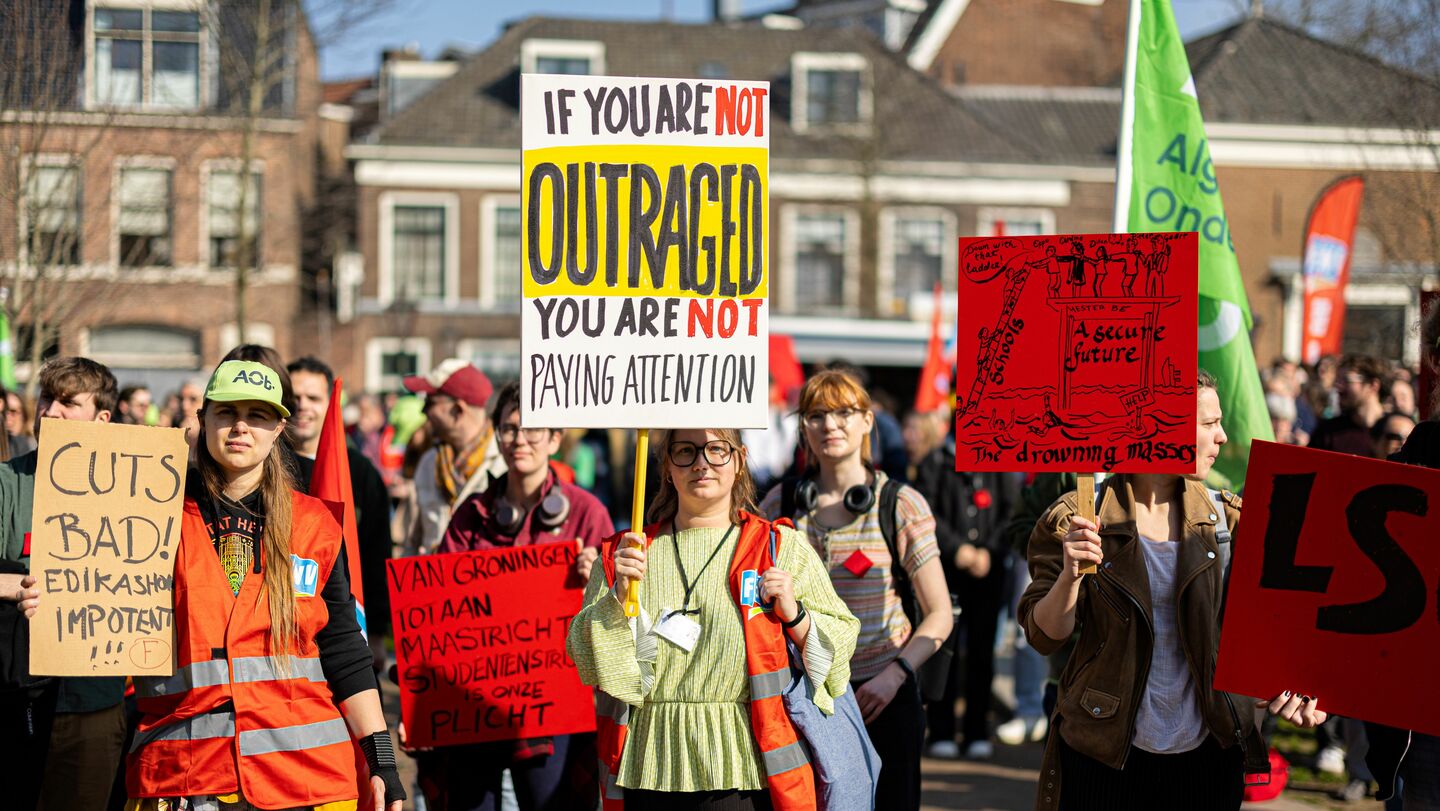
Can you go on strike for political reasons? FNV: “Yes”
According to TU/e, political strikes – such as the current relay strikes against cutbacks in education – have no legal basis. Bernhard Koekoek of the Netherlands Trade Union Confederation (FNV) explains that there are exceptions and that this counts as one. “A political strike is allowed when the problem affects your working conditions.”
Last week, staff and students at higher education institutions in Leiden, Utrecht, and Nijmegen went on strike for a day. They did this as part the broader ‘relay strikes’ organized by WOinActie, together with the FNV, AOb, and LSVb unions. They hope that this campaign will persuade the government to withdraw the planned 1.3 billion in cutbacks in education and research.
Legal basis or not?
Earlier, TU/e spokesperson Ivo Jongsma said the university doesn’t support this ‘political’ strike, arguing there’s no legal basis for it. “In accordance with the European Social Charter, employees have the right to strike in the event of a conflict over employment conditions with the employer. However, these strikes are directed at choices made by this cabinet, which makes them ‘political strikes’. There is no legal basis for that,” said the spokesperson.
Bernhard Koekoek of FNV says that the current relay strikes are an exception. “A political strike in the Netherlands is allowed if the problem you’re striking against affects your working conditions. That’s the case with the planned cutbacks, so this strike is a legitimate means to an end,” he says. “We’ve studied the matter in-depth with our legal experts.”
The European Federation of Public Service Unions (EPSU) drew up a document that lists all the rules and rights regarding strikes in the Netherlands. It states that, in principle, political strikes aren’t justified, unless they’re organized ‘to put the Government under pressure’ and they concern ‘labour-related issues’. In this case, the Dutch Supreme Court ruled, a political strike can still fall within the European Social Charter (Article 6.4).
Harmful
Koekoek says he finds it ‘harmful’ for the TU/e spokesperson to argue the strikes aren’t legally valid. “Many people are taken aback by such a statement and are therefore more reluctant to participate in the strike. But we need as many people as possible to make an impact with this campaign,” he says. “In the end, the universities also stand to benefit from this.”
TU/e says that in regard to the relay strikes, it adheres to the policy agreed in the context of umbrella organization Universities of the Netherlands. Spokesperson Jongsma emphasizes that the university does greatly appreciate initiatives that protest the disastrous cutbacks in higher education. “We therefore give students and staff the opportunity to participate in the strike, provided they adhere to the previously communicated guidelines for participation.”

Discussion